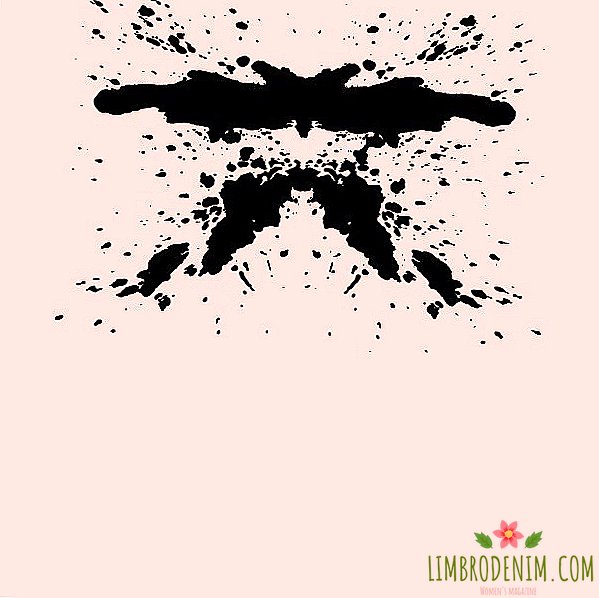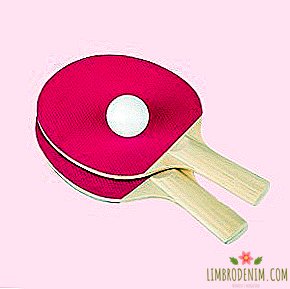"Therapy of the North": How I went to live in Svalbard
Most of all in life I have succeeded in the game "What if ...?". I love to spontaneously buy a ticket and leave in an unexpected direction. How events will unfold, what ideas will throw life, what people I will face and what will follow after all is how to watch a TV show with your own participation.

For the past five years I have been working as a freelancing web designer. This allowed them to independently manage their own time, gave freedom of movement and a decent salary. I am fundamentally opposed to being in the comfort zone for a long time. But at that time everything happened against my will: a car taken on credit, an accident, compensation for insurance against an oncoming car. To solve the problem, I took up an endless queue of projects, and all my time was absorbed by work.
Then the idea of therapy with the north came to me - I adore winter, snow, frost. I looked at the map of Russia, searched for the most remote settlements and, by chance, found out about the village of Barentsburg on the Spitsbergen archipelago. But less than a week after the purchase of the ticket, the enthusiasm faded away and the prospect of staying at home at the computer seemed not so bad - it was much more comfortable than going on a long journey. From the upcoming trip was a minimum of expectations. Nevertheless, just a few hours after the plane landed on the archipelago, I decided to stay here to live. I was asked more than once why, and I sincerely shrugged my shoulders. Mountains, snow, ocean - yes, but much more important is that I finally felt that I was where I needed to be, as if I had come home after a long trip.
I immediately liked the regularity of the Arctic life. Around the wooden houses, occasionally passing snowmobiles, people walk with dogs or on skis. I walked from morning to evening, just breathing clean air and watching the local way of life. In the Russian village of Barentsburg, I spent two of my three weeks in Svalbard. Already in full confidence that I plan to settle in the archipelago, I came to the Center for Arctic Tourism "Grumant" and asked to work. I was offered to become a guide and part-time designer. So the opportunity to live in the Arctic began to turn into reality. It was autumn 2014.
Barentsburg
The contract with Arktikugl, and with it the new life, began in January 2015. The polar night on the archipelago lasts until the end of February, therefore, when we and other employees flew up to Spitsbergen, from the plane in pitch darkness only the runway lights could be seen. At the airport, we were met by a service helicopter MI-8. At that time it was the only way to get to Barentsburg.
About 400 people live and work in the village, all without exception - for the state trust. In winter, from the airport to the village can be reached by snowmobile, in the summer - by boat. Many workers come immediately for a couple of years, so they have neither snowmobiles nor boats. It is practically impossible for a simple worker to get out of the village on his own, and it is not recommended, as there is always a chance to meet with a bear. In recent years, coal mining cannot provide people with a decent life, so in Barentsburg they have high hopes for tourism, because many people are interested in the Arctic and Russian culture.
I settled in a hostel with other guys. I had more than enough living space, but there was little personal: we all shared one, albeit a large room. In the hostel, I constantly had the feeling of a communal flat: then someone arranged nightly gatherings, then unfamiliar people were in the room. Unfortunately, we could not get along: conflicts constantly arose due to everyday issues, and we couldn’t get along with someone.
I deliberately chose the reality without friends and familiar entertainment: no emotional conversations over a mug of coffee, trips to exhibitions and to the cinema, no opportunity to take and go somewhere for a couple of days simply because I want to. In difficult times, I looked at the northern lights, rejoiced at the screaming Arctic foxes outside the window and fed shy short-legged deer. I gave up what I used to be so important for maintaining morale, for the sake of the cool winds and a new life. It was my personal challenge.
In difficult times, I looked at the northern lights, rejoiced at the screaming Arctic foxes outside the window and fed shy short-legged deer
In February, the first tourists appeared - they came in organized groups from the Norwegian Longyear by snowmobile. My task was to give them a tour of the village and briefly tell its story. Then I barely had enough English and I didn’t have a dozen public speeches on my account. But the desire to tell excursions interestingly pushed to develop further; In addition, in my free time I began to learn Norwegian.
Once I went to work in Longyearbyen. Driving a snowmobile for the first time turned out to be quite difficult: it was necessary to constantly concentrate on the road, cope with the cold that still made its way through a ton of clothes, and get used to the incessant noise of the engine. In neighboring Longyearbyen, compared to Barentsburg, activity went off scale: there were a lot of people, snowmobiles, dogs. The day turned out to be wonderful, and as if for a moment I returned to the world of the new and fascinating.
In March, there was another big event - a solar eclipse. Due to the influx of tourists, we worked a lot, it happened for several weeks without days off. True, the irregular schedule did not affect the salary, and this increased the tension between the bosses and subordinates. At first, you rejoice that in principle you are in Svalbard, and then you realize that there are difficulties and you have nowhere to go - all you have to do is go back home. But the most difficult thing was to cope with the lack of communication. I am not the most open person and able to entertain myself, but he still felt: I missed my friends and acquaintances. I promised myself: everything will end soon, you just have to suffer a little, be strong, no matter how hard it may be.
In the middle of May, the winter season ended, and we began preparations for the summer season. Even then in Barentsburg there were problems with food. Vegetables, fruits and dairy products were brought once a month on a ship or plane. People stood in line for several hours to buy at least something fresh. Much sold out for a couple of days. Overdue products also went to the course, and at the same prices. In order to somehow save money and not spend everything on expensive products, I switched to cereals and canned goods, supplementing them with bread, butter and condensed milk. The local canteen helped to diversify the diet: soups, salads, chops, cutlets and compote at reasonable prices. True, the menu was repeated there day after day.
By the end of the season, the relationship with the management finally went wrong, and I had to think about the changes. I left Barentsburg a month and a half before the expiration of the contract and decided never to return there. But I didn't want to leave from the archipelago. There is something magical in Svalbard that attracts to itself.

Longyear
While there was a polar night on Svalbard, I was on the mainland and thought about how I could stay in the Norwegian village of Longyearbyen: life there seemed promising and more diverse than Barentsburg. Much was decided by a Schengen visa, which ended in January. In fact, the archipelago does not need a visa, but, in order to pass through transit through Oslo, one cannot do without it. I doubted for a long time, but in the end I packed up my things and decided to go. The risk was justified. I was incredibly lucky, and the work was found the next day: in one of the hotels urgently needed a man at the reception, and I already had experience in the hotel, I knew English and a little Norwegian, so they took me.
Longyearbyen is a multinational city: about two and a half thousand people live here from more than forty countries. The goal of many of them is not the arctic romance, but the opportunity to earn money. In many ways, the conditions here are similar to the mainland: there is a large supermarket, post office, hospital, school, kindergarten, restaurants, bars, hotels and even a university.
There is always the risk of meeting the polar bear, so it’s not only allowed to carry a weapon, but also recommended; carbines and pistols can be bought even through a group on Facebook
The first thing that catches the eye in the city is the abundance of snowmobiles. They stand everywhere: in organized parking lots, in private houses, in fields, in valleys. You immediately feel like a free man when you get such mobility opportunities. The second thing that attracts attention: ordinary people carry large-caliber firearms with them. Since there is always a risk to meet with a polar bear outside the city, it’s not only allowed to carry a gun, but also recommended. Surprisingly, carbines and pistols can be bought both in the store and through the group on Facebook. Despite this, the crime rate in the city is close to zero.
I started working at the hotel when other staff were still on vacation. In addition to working with reservations, settling guests, I got some of my other responsibilities: breakfast, cleaning, 24-hour phone, mail, and financial reports. In a short period of time I found out in detail how the hotel works, and it seems to have done pretty well.
The most wonderful time in the city is April. Valleys turn into snowmobile highways, people prepare for a ski marathon, many rich travelers come to Longyearbyen, who are going on an expedition to the North Pole. I plunged into the work: there were not enough employees and the work day was stretched for eleven hours. This time, all overtime paid extra.
I met a few Russian-speaking guys, and we spent time together whenever possible. In winter, they could take a snowmobile and go to the other side of the fjord to drink tea with cookies. I loved to ski or climb one of the many mountains to watch the sunset — it’s easy to be closer to nature when it starts right outside. On a polar day, it was especially pleasant to have a barbecue near the house or on the shore of the fjord. Summer in Svalbard is pretty cool, almost always you go in a jacket and hat - but in sunglasses you can flaunt even at night.
But despite significant changes in the second year of life in Svalbard, after a few months, a feeling of dissatisfaction came again. Days turned into a simple work-home routine. It seemed that in two years nothing had changed in principle, that I still could not manage my time as I wanted. The quality of life has become much better, but I did not notice this: I was obsessed with what was not done, and did not take into account small steps at all. I again convinced myself that you just need to be patient a little, work more, as if this is some kind of a race, and ahead of you is the desired prize. It is a shame to admit that all this happened to me in such an incredible place as Svalbard, where a person would seem to feel happy and free.
What's next
Shake up and look around again helped me leave. I began to rejoice at every improvement, every new step. Now from my house you can see the mountains and the bay. In spring and autumn I do not get tired to marvel at the beauty and diversity of dawn, and in summer, when beluga swim, I watch them meditatively through the window. I appreciate the opportunity to get on skis or take a snowmobile at almost any moment and in a few minutes find myself in an endless valley. I am still impressed by the northern lights, huge bright blue glaciers and snow-capped peaks of the mountains, similar to marshmallows.
Sometimes I wonder what is next, and I constantly come to the conclusion that I am not yet ready to leave Svalbard. There is still too much to do, a lot to learn, much to endure, to interrupt. Only, perhaps, without fanaticism.
Photo: baluhh - stock.adobe.com, wira91 - stock.adobe.com





